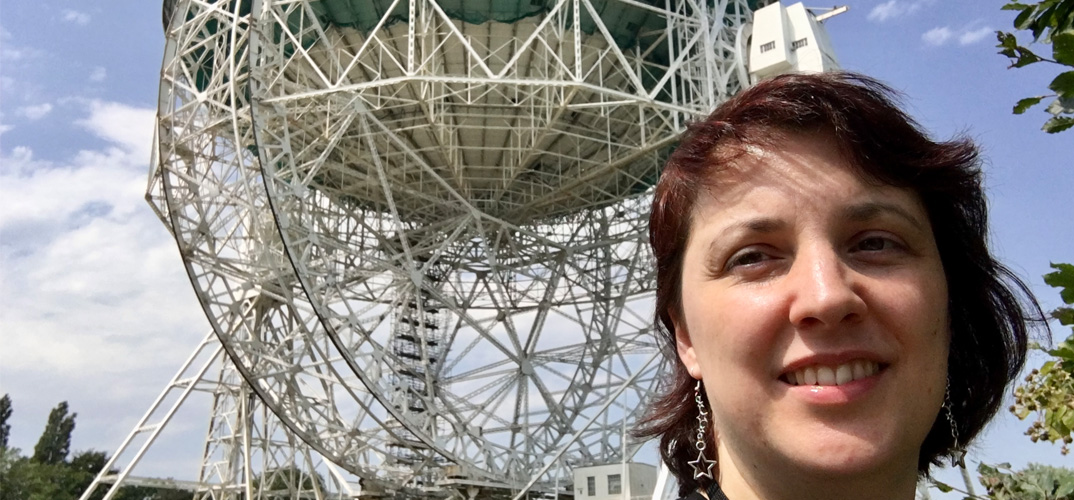Herts alumna wins prestigious science funding to explore the role that black-hole jets play in the evolution of our galaxy

A former postgraduate student from the University of Hertfordshire - Dr Beatriz Mingo - has been awarded a prestigious Ernest Rutherford Fellowship for her breakthrough research on new populations of black-hole jets.
Black-hole jets are powerful beams of particles (mostly electrons) travelling at near light-speed, powered by supermassive black holes. A significant fraction of them appear to be in galaxies like our Milky Way.
Dr Mingo is a former international student from Spain, who gained a PhD at the University of Hertfordshire in 2013, before carrying out ground-breaking research on X-ray and radio observations of active galaxies at the University of Leicester and the Open University.
Dr Mingo will return to Herts for her Fellowship, to research these newly discovered jet populations, which were invisible to previous surveys.
The funding, from the Science and Technology Facilities Council (STFC) supports early-career academics in conducting independent research and reinforcing the UK’s global leadership in astronomy and physics.
Dr Mingo’s work has already established that black-hole jets are far more common than previously believed, so the role they play in shaping the evolution of galaxies could be greatly under-estimated in our current models and simulations.
With her Fellowship project, Dr Mingo now aims to systematically examine these new populations, and how they arise and evolve in galaxies similar to our own, which were previously thought to be very rare.
The results will enable a better understanding of the evolution of our Milky Way and how it has actively participated in the energetic history of our universe.
Prof Kristen Coppin, Director of the Centre for Astrophysics Research at Herts, said:
“That Dr Mingo has chosen Herts as her host for this ground-breaking research is a sign of how well-regarded the university has become in the field of astrophysics.
“Our researchers have made significant discoveries on matters such as the composition of far-off galaxies, the furthest ever detection of a galaxy’s magnetic field, the history of our nearest galaxy, and hidden stars at the heart of our Milky Way.
“Now we look forward to this exciting new work and to Beatriz returning to us over 10 years since she gained her doctorate.”
The University has around 40 research astrophysicists on its staff, with some 30 postgraduate students also researching astrophysics. It has one of the country’s best-equipped teaching observatories, at Bayfordbury.
Dr Mingo said: "I am thrilled and very honoured to have been awarded an Ernest Rutherford Fellowship. It is a dream come true! These crucial populations of jets have the potential to revolutionise our understanding of galaxy and black hole evolution, and I cannot wait to get my research started.
“I am also really looking forward to being back at Herts, which is the ideal place to carry out this project, and where I will be working with outstanding experts in the field."
Dr Mingo will employ new radio data from the pan-European Low-Frequency Array (LOFAR) and the next-generation WEAVE optical survey at the William Herschel Telescope. Her results will become key inputs for upcoming surveys with the Square Kilometre Array and the Vera C. Rubin Observatory, in both of which the UK, through STFC, has strategic investment.
Information about the BSc (Hons) Astrophysics astrophysics course at Herts can by found via the University website.